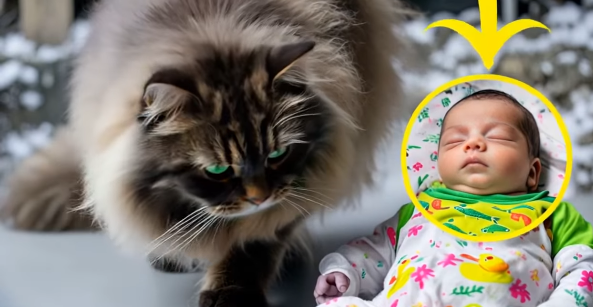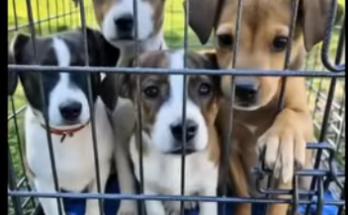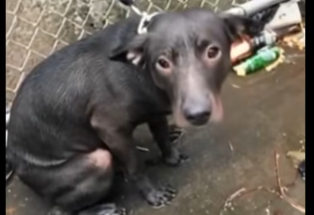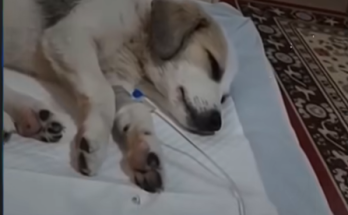Sometimes, stories of healing and hope don’t come from hospital rooms or scientific journals. Sometimes, they unfold quietly, in a small living room, between two lives that can’t speak — a baby and a puppy. This is a true story of compassion beyond comprehension, a moment that defies logic and touches something primal in all of us. It began with silence, with a baby who could not move. It ended with something that many now call a miracle.
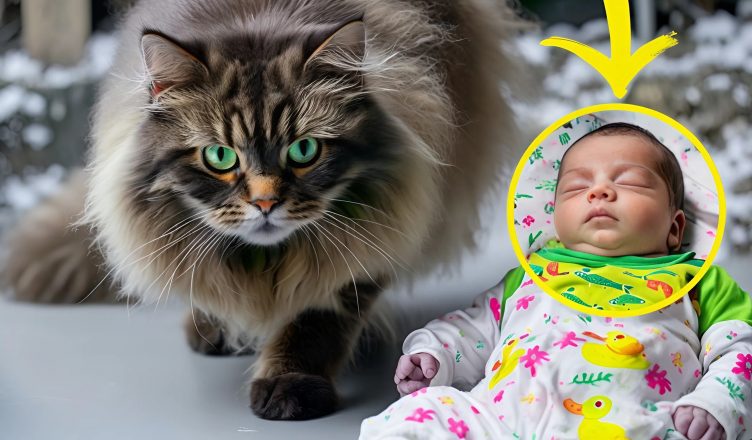
This is not a feel-good anecdote. This is a story of an unspoken bond, of intuition that went deeper than instinct. It’s about a tiny puppy who changed the life of a paralyzed six-month-old child — not with medicine, not with therapy, but with presence, warmth, and something very close to love.
A Quiet House and a Silent Crib
Elena and Marc had tried for years to have a child. When baby Noah was born, it was the happiest moment of their lives. But joy turned into fear just a few months later, when they noticed he wasn’t moving like other infants. No grabbing, no kicking. Medical tests confirmed the worst: Noah had a rare congenital spinal disorder that left most of his body paralyzed. Doctors were cautiously realistic — he might never crawl, never walk, never move on his own.
Their once-happy home became quiet. The nursery, painted in soft blues and greens, held a crib where Noah spent most of his time lying still, eyes open but unresponsive. He slept long hours, not from peace, but from exhaustion. Therapy sessions were planned, but progress was uncertain. The emotional toll was immeasurable.
It was around this time that a neighbor’s dog gave birth to a litter of golden retriever puppies. One in particular was smaller, gentler, and more curious than the rest. His name was Charlie.
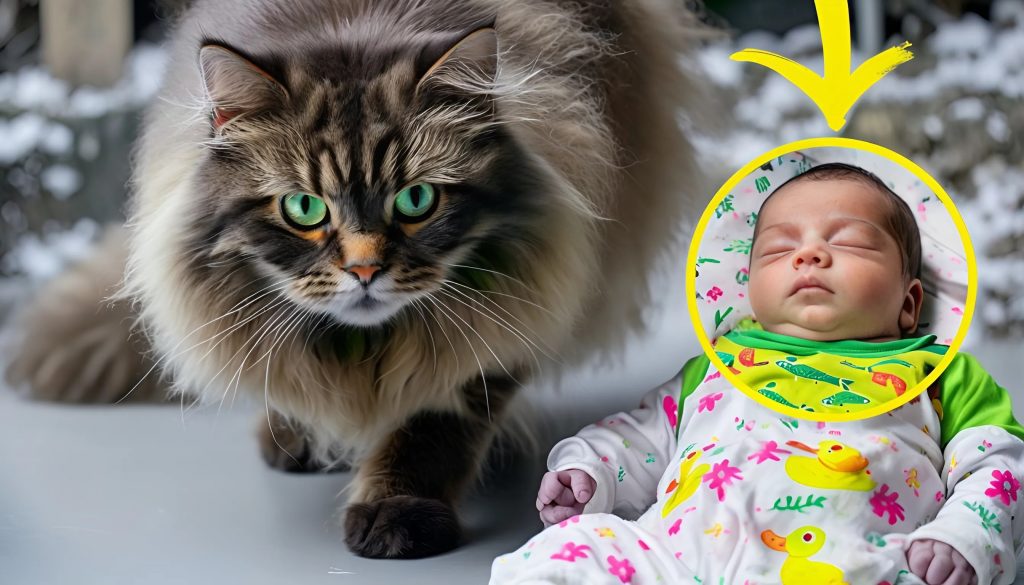
An Unlikely Introduction
Elena didn’t want a dog. Not now. Life was already overwhelming. But Marc believed something was missing in their home — something that no doctor could prescribe. After days of quiet convincing, Elena reluctantly agreed to adopt Charlie, the calmest of the litter.
Charlie arrived at their home in a shoebox lined with a blanket. From the first moment, he didn’t bark or jump. He walked slowly, sniffed every corner with deliberate care, and then curled up next to the heating vent. But the most surprising moment came when he first saw Noah.
With no prompting, no training, and no hesitation, Charlie trotted to the crib, sat on his hind legs, and rested his head on the mattress. Then, very slowly, he placed one paw on the edge. It wasn’t a playful gesture. It was calm, focused, and strangely deliberate. Elena and Marc watched, frozen.
Noah, who hadn’t moved voluntarily in weeks, blinked. Then, something they hadn’t seen before — the tiniest twitch in his finger.
The First Response
That night, Charlie insisted on sleeping beside the crib. He didn’t whine. He didn’t get distracted. He lay there, watching over the baby. Elena, sensing something intangible but powerful, left them that way.
By morning, Noah was still asleep — but not the same kind of sleep. His arms were in slightly different positions. One leg had shifted. Elena thought it was an illusion. She called Marc. He saw it too.
The days that followed were nothing short of astonishing.
Charlie became Noah’s shadow. He sat with him during therapy, lay beside him during naps, and nudged his toys closer when they rolled away. Noah began to follow Charlie with his eyes. Then his neck. Then — barely at first — his arms.
Doctors were skeptical, then amazed. It wasn’t a cure, they said. It was stimulation. Motivation. Emotional ignition. Something had awakened in Noah’s brain that hadn’t responded before — and it seemed to be connected to the presence of a 10-week-old puppy.
The Unseen Power of Connection
What Charlie provided wasn’t just companionship. It was a kind of silent encouragement. A living, breathing reminder to Noah that the world moved, breathed, responded — and that he, too, could interact with it.
Noah’s therapists began integrating Charlie into sessions. When Charlie licked Noah’s face, Noah tried to move away — and did. When Charlie barked softly, Noah flinched. These were milestones. Not miracles in the mystical sense — but in the medical world, every voluntary movement from a paralyzed infant is a victory.
But perhaps the most profound moment came three weeks later, when Charlie jumped into the crib (with help) and curled up beside Noah. The baby, sound asleep, moved one arm and rested it on the puppy’s back.
That photo went viral.
Why the World Responded
Elena posted the image on a parenting support forum with a simple caption: “My son hasn’t moved for weeks. Then this puppy came into our lives.” Within hours, the photo was being shared across social media platforms. News outlets called. Pediatric specialists weighed in. But most of all, everyday people connected with the moment.
